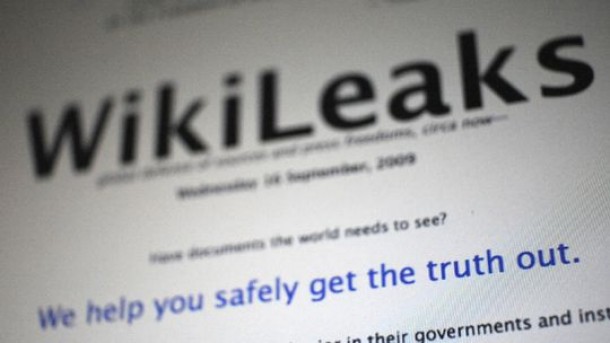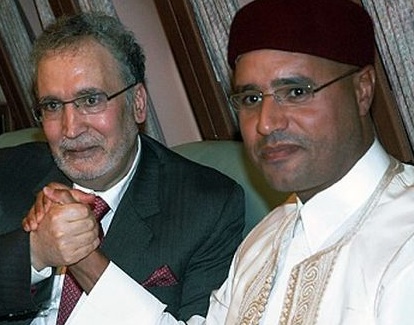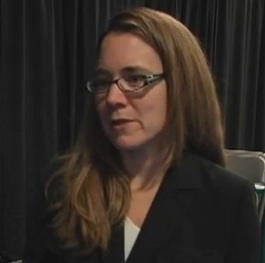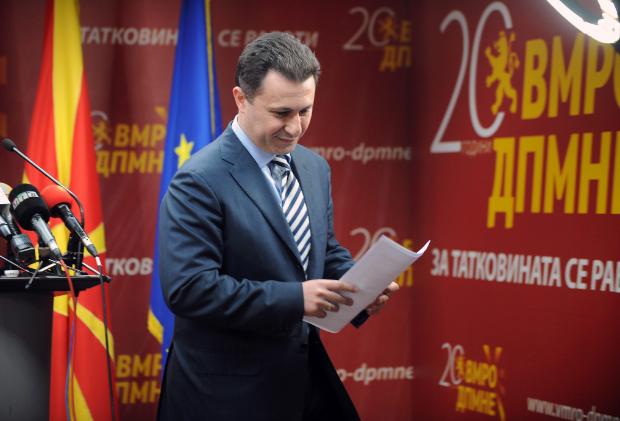 The past twenty four hours saw some big stories related to WikiLeaks break.
The past twenty four hours saw some big stories related to WikiLeaks break.
-The Grand Jury investigation into WikiLeaks widened as news subpoenas were issued to individuals like David House, co-founder of the Bradley Manning Support Network.
-The US government's case against Thomas Drake totally imploded. He accepted a misdemeanor plea deal and will likely serve no jail time primarily because the government did not want to make its case against Drake with information on classified technology.
-Andy Greenberg of Forbes.com reported on an ACLU lawsuit against the government for not complying with FOIA requests for specific US State Embassy cables
I had Trevor Timm, the person behind the @WLLegal Twitter account, record a podcast to talk about these recent WikiLeaks-related stories.
To listen, click play on the embedded player below (Or, go here to listen and download.)
 The grand jury investigation into WikiLeaks has widened. A subpoena has been issued to David House, co-founder of the Bradley Manning Support Network. Manning’s ex-boyfriend, Tyler Watkins, who recently appeared in PBS Frontline’s “WikiSecrets” documentary, and Nadia Heninger, who has done work with WikiLeaks volunteer Jacob Appelbaum (someone whose Twitter user data has been subpoenaed by the government), have each been served with a subpoena.
The grand jury investigation into WikiLeaks has widened. A subpoena has been issued to David House, co-founder of the Bradley Manning Support Network. Manning’s ex-boyfriend, Tyler Watkins, who recently appeared in PBS Frontline’s “WikiSecrets” documentary, and Nadia Heninger, who has done work with WikiLeaks volunteer Jacob Appelbaum (someone whose Twitter user data has been subpoenaed by the government), have each been served with a subpoena.
The new subpoenas come just over a month after the grand jury began meeting in Alexandria, Virginia on May 11 this year. Then, it was known at least one individual from Cambridge was issued a subpoena seeking to compel him to testify before a Grand Jury. And, Carrie Johnson of NPR, in one of the few articles published on the investigation by a US media organization, suggested “national security experts” could not “remember a time when the Justice Department has pursued so many criminal cases based on leaks of government secrets.”
Glenn Greenwald, who has been following the Grand Jury investigation since its inception, calls attention to the potential for witnesses to refuse to cooperate in this “pernicious investigation.”
One witness who has appeared before the Grand Jury has already refused to answer any questions beyond the most basic biographical ones (name and address), invoking the Fifth Amendment right against self-incrimination to do so, and other witnesses are highly likely to follow suit.
The role of European countries in the rendition, detention and torture of alleged terrorists has been scrutinized numerous times. The most comprehensive overview was compiled by Swiss politician Dick Marty on behalf of the Council of Europe in 2006. This report is freely available on the internet.
This document describes a network of European countries facilitating extrajudicial measures taken by the CIA. If these allegations can be proven, they are in violation of national and international law.
In the above report, two European countries are said to have hosted so called "black sites" in which detainees would be subject to torture, Poland and Romania. The main arguments supporting these allegations are flight tables, from which can be proven that aircraft connected to the CIA landed at airports which are not normally used for international traffic of this scale.
These assumptions are also supported by eye witness accounts of airport employees, detainees, and others with a knowledge of these sites.
This information has been in the public domain for years, but there have not been any serious legal consequences for those involved. Even though a parliamentary committee investigation in Lithuania concluded that there were at least two black sites in the country, this did not lead to a prosecution. (Lithuania is not mentioned in the Marty report as these prisons were in operation in 2005 and 2006, during and after the report was written).
Of these three countries, Poland's role has been scrutinized most in the international press:
http://news.bbc.co.uk/1/hi/world/europe/6212843.stm
http://www.guardian.co.uk/uk/2007/jan/04/politics.usa
http://www.spiegel.de/international/world/0,1518,621450,00.html
 Mentor and friend Greg Mitchell at TheNation.com is on vacation. While he is away, I am pinch-hitting and blogging WikiLeaks updates here. All the times are EST. You can contact me at kgosztola@hotmail.com with any news tips. Twitter username is @kgosztola. Also, if you are looking for something good to listen to, I encourage you to check out the catalog of podcasts posted here at WL Central from the "This Week in WikiLeaks" show I produce every week.
Mentor and friend Greg Mitchell at TheNation.com is on vacation. While he is away, I am pinch-hitting and blogging WikiLeaks updates here. All the times are EST. You can contact me at kgosztola@hotmail.com with any news tips. Twitter username is @kgosztola. Also, if you are looking for something good to listen to, I encourage you to check out the catalog of podcasts posted here at WL Central from the "This Week in WikiLeaks" show I produce every week.
11:10 PM Big ruling for Pharma whistleblowers: Court rules under the False Claims Act "a drug or device maker remains liable...even when a pharmacy or hospital was unaware that a kickback was made to a doctor to induce the sale of a product for which reimbursement was sought from Medicare and Medicaid." This has the potential to alter outcome of a number of whistleblower lawsuits.
11:00 PM Over 4,100 citizens sign petition urging the Department of Justice to drop its case against NSA whistleblower Thomas Drake
10:50 PM Historical WikiLeaks: Documents showing British government fears that French would launch "back door attack" being made available. The government files are from the Stuart period and include secret reports of espionage and treason.
Authored by Harry Browne. This article was first published on CounterPunch on June 3.
Ireland’s foreign-affairs minister assured the US ambassador in Dublin in 2006 that the Irish government was prepared to change the law that had allowed the acquittal of five anti-war activists for damaging a US Navy plane.
The revelation that a senior Irish official discussed possible amendments to domestic criminal law with the US ambassador is contained in a Wikileaks cable (see below) that has not been published or reported upon elsewhere, but which has been seen by Counterpunch.
At the time of the acquittal of the so-called Shannon Five, or Pitstop Ploughshares, in July 2006, the US embassy made a public statement expressing its disquiet about the verdict. The then foreign minister, Dermot Ahern, responded with what was seen as a firm public statement of his own, underlining the independence of the judicial system and stating that its verdicts were not a matter for discussion by government officials or between governments.
The cable reveals, however, that a few months later Ahern privately told US officials that the “the Irish Government Cabinet” had been greatly disturbed by the unanimous jury verdict. (The delay between the verdict and this meeting may have been caused by a change-over in US ambassadors.) Ahern told the Americans that the Cabinet had asked the justice minister, Michael McDowell, to examine how the Criminal Damage Act might be amended to close the “legal loophole” that allowed the Shannon Five to be acquitted, so that such a verdict could not happen again. A previously released cable from the same period quotes a senior foreign-affairs bureaucrat telling the Americans the verdict was “bizarre”.
 Mentor and friend Greg Mitchell at TheNation.com is on vacation. While he is away, I am pinch-hitting and blogging WikiLeaks updates here. All the times are EST. You can contact me at kgosztola@hotmail.com with any news tips. Twitter username is @kgosztola. Also, if you are looking for something good to listen to, I encourage you to check out the catalog of podcasts posted here at WL Central from the "This Week in WikiLeaks" show I produce every week.
Mentor and friend Greg Mitchell at TheNation.com is on vacation. While he is away, I am pinch-hitting and blogging WikiLeaks updates here. All the times are EST. You can contact me at kgosztola@hotmail.com with any news tips. Twitter username is @kgosztola. Also, if you are looking for something good to listen to, I encourage you to check out the catalog of podcasts posted here at WL Central from the "This Week in WikiLeaks" show I produce every week.
10:10 PM "This Week in WikiLeaks" podcast just up here at WL Central. Marcy Wheeler who blogs as Emptywheel at Firedoglake is the guest. I interview her on cyber security, whether the SIPR classified information database compromised supposedly by Bradley Manning has been secured by the Department of Defense or not, and national security journalism and the war on whistleblowing,
 8:00 PM The second round of cables coverage from one of the latest WikiLeaks partners, The Scotsman, is up. They cover Megrahi's release, the Lockerbie Bomber. The revelation is Gaddafi wanted the release of the Lockerbie Bomber because he was upset about "the case of six Bulgarian nurses freed from a Libyan jail in 2007." Because he was upset, he wanted to give Megrahi a "hero's welcome," something Sen. John McCain didn't think would be good for relations.
8:00 PM The second round of cables coverage from one of the latest WikiLeaks partners, The Scotsman, is up. They cover Megrahi's release, the Lockerbie Bomber. The revelation is Gaddafi wanted the release of the Lockerbie Bomber because he was upset about "the case of six Bulgarian nurses freed from a Libyan jail in 2007." Because he was upset, he wanted to give Megrahi a "hero's welcome," something Sen. John McCain didn't think would be good for relations.
 As it becomes more and more clear the United States government is accelerating efforts to establish a policy and improve the government's ability to respond to cyber attacks, the openness and freedom of the Internet is more and more at stake. Also, specific to an organization like WikiLeaks, the government may be on its way to crafting legal authority to take WikiLeaks out with DDoS or DNS attacks. (Of course, many already believe the US was behind the attack on the WikiLeaks website that took place just as WikiLeaks was beginning to release the US State Embassy cables.)
As it becomes more and more clear the United States government is accelerating efforts to establish a policy and improve the government's ability to respond to cyber attacks, the openness and freedom of the Internet is more and more at stake. Also, specific to an organization like WikiLeaks, the government may be on its way to crafting legal authority to take WikiLeaks out with DDoS or DNS attacks. (Of course, many already believe the US was behind the attack on the WikiLeaks website that took place just as WikiLeaks was beginning to release the US State Embassy cables.)
 Marcy Wheeler, guest on the podcast this week, gets into this saying, "If you agree that bringing down speech is a legitimate cyber warfare tactic and if you agree that WikiLeaks was an attack on defense infrastructure or maybe State Department infrastructure, then you can easily get to the justification of okay we can do a DDOS attack on WikiLeaks," and finds the US government may be working to create legal justification for such attacks.
Marcy Wheeler, guest on the podcast this week, gets into this saying, "If you agree that bringing down speech is a legitimate cyber warfare tactic and if you agree that WikiLeaks was an attack on defense infrastructure or maybe State Department infrastructure, then you can easily get to the justification of okay we can do a DDOS attack on WikiLeaks," and finds the US government may be working to create legal justification for such attacks.
Wheeler blogs at Firedoglake as Emptywheel. She primarily covers the national security establishment in the United States and has written many blog posts on WikiLeaks, Bradley Manning and cyber security, with her most recent post on all of this being, "The Cyberwar Campaign against Jihadi Literature and WikiLeaks."

Претходните парламентарни избори во Македонија, одржани на 1.07.2008 годин.поминаа, со голем број груби прекршоци. Набљудувачите констатирале дека победата на владејачката и тогашната партија ВМРО-ДПМНЕ била постигната со цената на заплашување и насилство врз гласачите, со измами, со ставање на повеќе гласачки ливчиња од едно лице, или гласачки ливчиња од името на непостоечки гласачи. Терминот кој е употребен во извештајот на Американската амбасада од Скопје [08SKOPJE359] е "ballot-stuffing", што буквално значи "филовите со гласачки ливчиња" и е познат од средината на 19 век во САД, како едно од средствата за манипулација на резултатите од раните години на демократските општества и такви во примарената фаза на својот развој. И покрај повиците на меѓународната заедница и медиумите за слободни и фер избори и осудата на непопреченото спроведување, гласањето во Македонија е прогласено за нормално и законско од власта.
Во програмата детално се опишуваат случаи на убиства во изборниот ден, како и такви на попречување на граѓани да го искористат законското право на глас. Други биле директно заплашувани, откако побарале контакт да се пожалат на меѓународните набљудувачи. Амбасадорката, Џилијан Миловановиќ опишува и ги пренесува потреснате услови, поминаа изборите за парламент пред 4 година - масовно полнење на гласачки ливчиња и согорување на неудобни билтени; употреба на оружје; физички напади врз набљудувачи и државните службеници вклучени во изборите; уништување на цели изборни гласачки кути и гонене на меѓународни и локални набљудувачи на изборите, групни и семејни гласања и сл.
 Dueling resolutions from Republican Speaker of the House John Boehner and Democratic House Representative Dennis Kucinich sparked a debate in Congress. The debate centered around the War Powers Act, the US Constitution and whether President Obama had violated the law by taking the United States into a war in Libya.
Dueling resolutions from Republican Speaker of the House John Boehner and Democratic House Representative Dennis Kucinich sparked a debate in Congress. The debate centered around the War Powers Act, the US Constitution and whether President Obama had violated the law by taking the United States into a war in Libya.
The Kucinich Resolution (H.R. Con. Res. 251) aimed to direct the president, pursuant to the War Powers Act, to remove all troops from Libya within fifteen days after the resolution was adopted. It was an attempt to force Congress to exercise the authority that it has under the Constitution to decide when and where troops are deployed for wars and whether or not wars should be launched.
In contrast, the Boehner Resolution (H.R. Con. Res. 292) was offered by Speaker Boehner to take the wind out of the sails of the growing bipartisan movement, consisting of anti-war Democrats and anti-interventionist Republicans, who were ready to assert Congress’ legislative authority and oppose the further expansion of the Executive by the Obama Administration that has taken place as a result of the Libya War.
The resolution brought by Rep. Kucinich failed 148-265. Speaker Boehner’s resolution passed 268-145.
Wikileaks Australian Citizens Alliance has kindly allowed us to share this series of videos, a conversation between myself, Sam and Kaz.
There was some difficulty with the software not behaving itself and the audio on my side was a bit patchy. We'll be working on future conversations where hopefully the use of Skype and glitches will be improved.
Part 1
Part 2
Part 3
WACA's Youtube user site here, with more videos well worth having a look.
http://www.youtube.com/user/akaWACA
As an Australian citizen I must say it is most pleasing that others like Sam and Kaz at WACA in Australia are so motivated to become involved online and elsewhere to carry a torch for human rights and Wikileaks. There are so many people around the world on the same page with us here at WLC.
Well done Sam and Kaz!
Reprinted with permission from Dr. Michael Geist, a law professor at the University of Ottawa where he holds the Canada Research Chair in Internet and E-commerce Law. He has obtained a Bachelor of Laws (LL.B.) degree from Osgoode Hall Law School in Toronto, Master of Laws (LL.M.) degrees from Cambridge University in the UK and Columbia Law School in New York, and a Doctorate in Law (J.S.D.) from Columbia Law School. Biography here.
The United Nations Special Rapporteur on the promotion and protection of the right to freedom of opinion and expression has released an important new report that examines freedom of expression on the Internet. The report is very critical of rules such as graduated response/three strikes, arguing that such laws may violate the International Covenant on Civil and Political Rights (Canada became a member in 1976). Moreover, the report expresses concerns with notice-and-takedown systems, noting that it is subject to abuse by both governments and private actors.
On the issue of graduated response, the report states:
he is alarmed by proposals to disconnect users from Internet access if they violate intellectual property rights. This also includes legislation based on the concept of “graduated response”, which imposes a series of penalties on copyright infringers that could lead to suspension of Internet service, such as the so-called “three strikes-law” in France and the Digital Economy Act 2010 of the United Kingdom.
 The Bradley Manning Support Network will be having a rally to support Bradley Manning at Leavenworth tomorrow.
The Bradley Manning Support Network will be having a rally to support Bradley Manning at Leavenworth tomorrow.
I interviewed Jeff Paterson, who is with Courage to Resist and serves on the Bradley Manning Support Network Steering Committee.
You can listen to the interview by clicking on the embedded player:
Paterson discusses Manning's transfer to Leavenworth saying it "came about only because more than a half million people took action" through protests, letters, singing songs directly to the president etc. And, it was a victory that ended the "torturous conditions" he was being subjected to at Quantico.
Paterson also deconstructs recent portrayals of Manning in films produced by PBS and The Guardian.
Reprinted with permission from author Laura Beach, Co-founder of TapThirst and student activist. This article was originally published by The Mark
From simulation programs to unmanned drones, Canada's schools have joined the fight.
Fifty years ago, in his farewell address, President Dwight Eisenhower warned the American public against the “unwarranted influence” of industry and military interests on academic institutions. A close look at this influence within the context of Canadian universities suggests he had good cause to worry.
The influence of what Eisenhower termed the “military industrial complex” within the university sphere has been facilitated by a number of radical changes in post-secondary research and funding paradigms. Over the past four decades, a shift away from numbers-based funding toward “performance”-based indicators has effectively minimized the importance of enrolment, retention, and graduation rates while maximizing the importance of job placement data, faculty productivity, and external funding for research.
External (corporate) funding for research has assumed a central role in the university funding paradigm with the rise of proprietary research, accompanying sales and revenues generated through royalties, and a growing emphasis on public-private research partnerships. A significant portion of federal funding to Canadian universities now flows through “matching funds” projects where industry and government share financial investment.

Two cables, exposing the use of the state repressive apparatus by the Macedonian PM Gruevski to quell dissent and the corruption in the Gruevski inner circle, were immediately denied as falsification in an official statement of the ruling party VMRO - DPMNE.
[09SKOPJE601] MACEDONIA: GOVERNMENT USES STATE ORGANS TO ENFORCE LOYALTY AND SILENCE DISSENT
[09SKOPJE332] MACEDONIA: DANGEROUS DRIFT?
The diplomatic reports from the Embassy of Skopje were analyzed and published first by the WL partner's site Bivol and the european portal EurActiv on Friday. Macedonia is preparing for parliamentary elections this Sunday.
The cables are fake and fabricated by the opposition party SDSM and the A1 television, the official Gruevski's party statement claims. According to the text "financial and political interest" are motivating this falsification.
Another pro-government analyst went further in this logic and accused Greek secret services to help SDSM.
Macedonia and Greece has a long running and unresolved dispute about the name of the former yougoslav republic.

Македонската влада на премиерот Никола Груевски и неговиот внатрешен круг систематски го користи правниот и репресивен апарат на државата, за да ги исклучи неистомислениците, открива американски дипломатски извештај добиен од Wikileaks и дели со Bivol.bg и EurActiv.com
Позадина
Тајните Извештаи на САД, добиени од EurActiv и сајтот за истражувачко новинарство бивол, кој објавува ексклузивни материјали на Wikileaks за Балканот, содржат информации за Груевски и неговото опкружување од владејачката партија ВМРО-ДПМНЕ, кои создаваат "атмосфера на страв" во земјата кандидат за Европската унија.
Филип Т. Рикер, амбасадор на САД во Скопје од септември 2008-ма година, пишува во извештаите од декември 2009-та, дека Груевски ги користел сеопфатните обвиненија за злоупотреби, против официалните членови на македонската политичка елита.
"Јавни апсења, притвори или истраги на сегашни и поранешни министри, партиски членови и членови на опозицијата.Ги постави под притисок македонските политичари да се воздржат од предизвици и критики кон владата на Груевски", пишува Рикер.
Дипломатите на САД во Македонија, исто така, го информираат Вашингтон дека до нив стигнале поплаки од невладини организации, чии членови биле повикани од полицијата на застрашувачки "информативни разговори".
"Покрај тоа, овие тактики се прикажани на македонската јавност како храбри напори на владата да се справи со корупцијата, а со тоа се оправдува јавната поддршка за овие злоупотреби", пишува амбасадор Рикер.
 A student at the Medill School of Journalism at Northwestern University in Chicago was gracious enough to invite me to speak on a panel on Bradley Manning, the alleged whistleblower to WikiLeaks, which he had to put together for his “Media, Ethics and the Law” class. I participated in the panel this morning.
A student at the Medill School of Journalism at Northwestern University in Chicago was gracious enough to invite me to speak on a panel on Bradley Manning, the alleged whistleblower to WikiLeaks, which he had to put together for his “Media, Ethics and the Law” class. I participated in the panel this morning.
In addition to myself, the student informed me Timothy McNulty, a foreign editor for the Chicago Tribune who covered the Iraq invasion and the Afghanistan War, and Paul Rosenzweig, Carnegie Visiting Fellow and former Department of Homeland Security official, would be participating. A couple of student journalists would speak during the panel as well.
McNulty and Rosenzweig were both present in the classroom where the panel was held. I was in The Nation Magazine office in Manhattan, New York.
The student who organized the panel had me call in and put me on speakerphone. I was able to listen to what McNulty and Rosenzweig were saying.
Rosenzweig began the panel saying with assurance there isn’t any doubt the material WikiLeaks has released has caused risks. He said lists have been created of people who were listed in the documents—lists featuring the names of informants—and the Taliban has been hunting these people down.
Rosenzweig cited a Zimbabwe opposition leader who many believe to be endangered as another example of the risks WikiLeaks’ releases have created. He said there are good laws on secrecy, files released contained information on whereabouts of Osama bin Laden, and he has no problem with Manning being prosecuted.
McNulty agreed. And I was greatly disturbed by the falsehoods that McNulty let stand and made certain that I was able to comment.
ДУИ: Миjaлков барал етнички судир со Албанците

Политичкиот лидер Али Ахмети, претставник на партијата на албанската етничка заедница во Македонија ДУИ направи силно критичка анализа за управување со земјата пред американскиот амбасадор, станува јасно од дипломатска телеграма од Скопје, од Cablegate, кој е откриен од Wikileaks. Извештајот [09SKOPJE411] е подготвен од страна на Амбасадорот Филип Рикер и е испратен до Вашингтон на 21 август 2009 година.
Амбасадорот е гостување на Ахмети во неговата фарма во планинска област во западна Македонија на 16 август 2009, по повод 8 годишнината од Охридскиот договор (2001 година). Пред него Ахмети го критикуваше премиерот Никола Груевски за застојот во преговорите за името на Македонија и дипломатските односи со Косово. Според Ахмети тоа можеше да им наштети на односите со Србија и Бугарија. Албанскиот лидер побара од амбасадорот да изврши посилен јавен притисок, за да се реши прашањето со името. Од своја страна, амбасадорот забележал дека задкулисните активности може да се поефикасни од јавниот притисок.
Лидерот на ДУИ смета премиерот Груевски за премногу млад и наивен, што се одразува и во донесувањето одлуки.
Ахмети изразил загриженост од влијанието на внатрешниот круг околу Груевски, особено од братучед на Груевски Сашо Мијалков, кој е шеф на тајните служби. Според лидерот на ДУИ, Мијалков има контакти и желба да провоцира "лумпенизирани албански елементи во Македонија", за да предизвика етнички тензии, со што Мијалков да го оправда големи акции против албанската етничка заедница. Занемарување на Мијалков воопшто во однос на етничките Албанци, исто така, било наведено во разговорот.
На овој настан, претседателот Иванов е опишан како "добро момче", но со малку власт и влијание, де факто потчинет на премиерот.
On Friday's Democracy Now, Amy Goodman spent a long segment with Eli Pariser of MoveOn.org talking about threats to the Internet. The timing was particularly appropriate because an extremely serious threat to our Internet freedoms made important advances last week and an alarm needs to be sounded. Unfortunately that's not what Amy talked about. Instead of enlightenment, Amy and Eli offered diversion and confusion. I was very disappointed.
Thursday, the Senate Judiciary Committee passed the Protect IP Act. This legislation, if it becomes law, will make the Internet in the US like the Internet in China; both will be filtered by their governments. Like the Internet Blacklist bill [COICA] that they couldn't get passed last year, this new bill authorizes the Attorney General to create a list of websites that are to be blocked. COICA would have made legal the Federal government practice of seizing domain names without a notice or a hearing. This is a power that the AG started exercising on his own authority last year, after they failed to get their eggs hatched in the Senate. But as I pointed out last December, they have figured out that seizing domain names is pretty impotent if the search engines continue to do their job of indexing the web for us as they find it. So now they have come out with an "improved version" that forces even more draconian controls on the Internet.
Governments all over the world are much more concerned with controlling the Internet after seeing the role it played in the uprisings in Tunisia and Egypt. So this Internet Blacklist bill Version 2.0 [Protect IP Act] now also makes it illegal for any web services, including search engines, to refer to the banned websites or their content. In China, the government was forcing Google to filter out certain search results for say "Tiananmen Square", that's why they left China. I don't know who in the Chinese government determines what search engines are allowed to find on the Internet but if this act becomes law, it will be the Justice Department in the US.
 The Dawn Media Group in partnership with WikiLeaks has been releasing the "Pakistan Papers." Thus far, some of the revelations include the following: US was concerned that Pakistan would oppose its policies at the United Nations; US was worried Pakistan would purchase oil from Iran, allowing them to get a foothold in Pakistan; Pakistan's government was upset with US funding for the Pakistan military, which led to increased civil-military tensions; Pakistan's military asked for continued drone coverage; the US has had troops deployed on Pakistan soil; Saudi Arabia and the UAE have been financing jihadist groups in Pakistan and the US did not provide Benazir Bhutto with proper security.
The Dawn Media Group in partnership with WikiLeaks has been releasing the "Pakistan Papers." Thus far, some of the revelations include the following: US was concerned that Pakistan would oppose its policies at the United Nations; US was worried Pakistan would purchase oil from Iran, allowing them to get a foothold in Pakistan; Pakistan's government was upset with US funding for the Pakistan military, which led to increased civil-military tensions; Pakistan's military asked for continued drone coverage; the US has had troops deployed on Pakistan soil; Saudi Arabia and the UAE have been financing jihadist groups in Pakistan and the US did not provide Benazir Bhutto with proper security.
For this episode of "This Week in WikiLeaks," the show has part two of an interview that was done with Raza Rumi, a writer based in Lahore, Pakistan. Rumi regularly writes for the Pakistani weekly The Friday Times, The News and Daily DAWN on myriad topics such as history, arts, literature and society. Rumi has worked in Pakistan and abroad in various organizations including multilateral institutions such as the United Nations.
Rumi's writing can be read here.
[*Note: This is the second part of "This Week in WikiLeaks" for the week. You'll find part one, an interview with Kevin Zeese of the Bradley Manning Support Network on the one year anniversary of Manning's arrest here.]
To hear the show, click play on this embedded player.
 Citizens of the United States today join in celebration of Memorial Day and honor those who have died in American wars from now all the way back to the American Civil War. It is the ninth consecutive Memorial Day during the “war on terrorism,” which was the Bush Administration’s response to the September 11 attacks. The “war on terror,” as the world knows, led to the Afghanistan and Iraq War and countless other covert military operations all aimed at rooting out terrorism.
Citizens of the United States today join in celebration of Memorial Day and honor those who have died in American wars from now all the way back to the American Civil War. It is the ninth consecutive Memorial Day during the “war on terrorism,” which was the Bush Administration’s response to the September 11 attacks. The “war on terror,” as the world knows, led to the Afghanistan and Iraq War and countless other covert military operations all aimed at rooting out terrorism.
The memories of war shared with veterans in communities are, of course, sanitized. Communities do not really tell the stories of war. Members of squads like the “Kill Teams” of Afghanistan do not share photos or cell phone videos they captured when they shot innocent civilians and posed with them. They do not talk about the glory of employing “enhanced interrogation techniques” or torture to gain, often, false information from detainees at Guantanamo or “black” prison sites to better prosecute the war against global terrorism. And probably few could be said to be telling real war stories, like the ones that can be found in the pages of the American literary classic by Tim O'Brien, The Things They Carried.
Theme by Danetsoft and Danang Probo Sayekti inspired by Maksimer